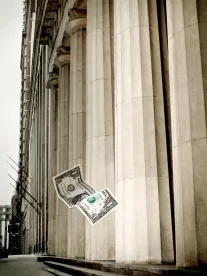Whether a plaintiff’s damages were foreseeable is often the key dispute in a lawsuit. The plaintiff argues the defendant should have foreseen and prepared for the harmful event; in response, the defendant insists no reasonable person could have foreseen the need to guard against the event. These two competing arguments will arise again and again in post-COVID-19 litigation.
As the COVID-19 pandemic has unfolded, IMS has been conducting research, including focus groups with mock jurors across three U.S. venues, to help clients gain a clear view of the context surrounding their cases and jurors’ attitudes. In our research, we found that jurors’ responses to this dilemma were nearly evenly split, 51% agreed that the COVID-19 pandemic was an unforeseeable, worldwide tragedy that has caught everyone by surprise — compared to 49% who disagreed with those conclusions.
In our focus groups, a large percentage of the mock jurors used the familiar concept of “preparedness” to evaluate the legal element of foreseeability. Jurors expect people to prepare for occurrences that can reasonably be expected to occur. The question for mock jurors then became whether people could reasonably have expected and prepared for this pandemic. The vast majority of mock jurors in our study believed there is no historical equivalent to the COVID-19 experience.
This lack of precedent led to extensive discussions revolving around four questions:
(1) How does one assess foreseeability and a defendant’s obligation to prepare for an event if members of society have not previously experienced such an event?
(2) Can a person or business be culpable for injuries caused by an unprecedented event?
(3) Is the unprecedented nature of the event irrelevant because certain defendants have an obligation to always be prepared for certain types of events?
(4) Does a larger or more sophisticated party have a greater obligation to prepare for unexpected or unprecedented situations?
On COVID Time: Why Timelines Are More Important Than Ever
How Will the Concept of 'Personal Responsibility' Influence the Attitudes of Jurors?





 />i
/>i

